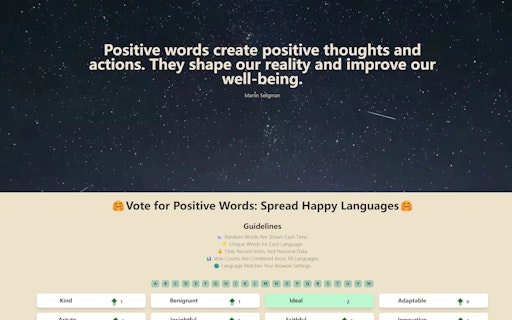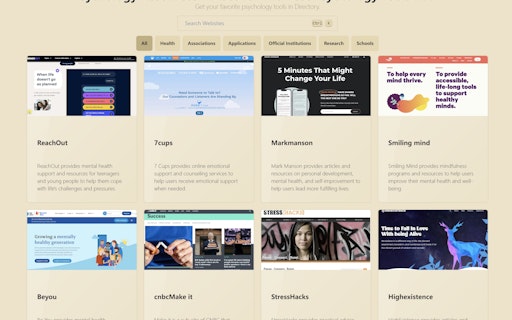
Kuakua - Psychology & AI for Well-Being
Discover joy, explore psychology, enhance daily well-being.


| About | Details |
|---|---|
| Name: | Kuakua - Psychology & AI for Well-Being |
| Submited By: | Ruben McClure |
| Release Date | 1 year ago |
| Website | Visit Website |
| Category | Education Health |
Find happy languages & happy task, explore psychology theories, websites&app resources, and engage in daily study to enhance your well-being and happiness.
What is positive vocabulary, and why is syntax so important? In "Nonviolent Communication," psychologist Rollo May believes: "A mature person is very sensitive, just like listening to the different movements of a symphony, whether passionate and unrestrained, or gentle and soothing, he can perceive the subtle undulations." However, according to Rollo May's narrative, most people's feelings are "as monotonous as the sound of a bugle." ("Nonviolent Communication," Chapter 4: Experiencing and Expressing Feelings, P038) Intelligence quotient (IQ) includes emotional intelligence (EQ), and one criterion for judging IQ is the precision of our word usage. In a post by Wang Yizhi on vocabulary and precise wording, it is mentioned: Humans are animals living in the web of language, and our understanding of the world depends entirely on our linguistic abilities. The more precise your wording, the more specific your grasp of the situation, and precision depends on vocabulary. In psychology, there is a term called emotional granularity. A German author named Foltrevor spent seven years creating a dictionary of sadness. In this dictionary, there are 8000 words describing different types of sadness. He found that there are many vague emotions in life that cannot be expressed with clear words, so he asked his friends to describe in detail which type of sadness they were feeling, then he summarized it and turned it into a specific word. If a person does not understand the meaning of the word "love," then he will never understand what love is, and that he is living in a world full of love. The following words can be used to express our feelings when our needs are met: delighted, joyful, excited, sweet, energetic, grateful, touched, optimistic, confident, refreshed, happy, pleased, joyful, content, satisfied, intoxicated, comforted, peaceful, at ease, comfortable, relaxed, secure, warm, reassured, carefree, serene, overjoyed, ecstatic. The following words describe our feelings when our needs are not met: afraid, worried, anxious, concerned, hurried, nervous, sad, depressed, disheartened, discouraged, despairing, sentimental, desolate, sorrowful, annoyed, troubled, annoyed, angry, bored, dissatisfied, unhappy, impatient, shocked, disappointed, confused, lost, lonely, alone, gloomy, upset, pessimistic, heavy, numb, embarrassed, ashamed, guilty, regretful, restless, agitated, exhausted, listless, weary, sleepy, lethargic, listless, uncomfortable, envious. I am very happy to see similar projects emerge. Everyone should establish a vocabulary list for expressing feelings, which helps us to express our emotions more clearly and makes communication smoother.
1 year ago










